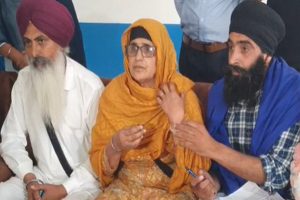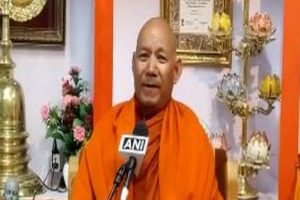Despite the constitutional provision of equal rights for all individuals, certain segments of society continue to face exploitation due to societal indifference, necessitating legal intervention. Article 14 of the Constitution of India (CoI) mandates equality before the law, prohibiting discrimination based on various grounds including gender. The issue of prostitution has long been debated, with proponents advocating for its legalisation and regulation to ensure the safety and well-being of sex workers, while opponents argue that it perpetuates gender inequality and exploitation, urging efforts to address underlying factors such as poverty and lack of education. Nevertheless, in the complex web of societal dynamics, the plight of sex workers often remains shrouded in stigma and misunderstanding. Yet, amidst these misconceptions lies a crucial conversation about human rights, dignity and social justice.
The Supreme Court in Buddhadev Karmakar v. State of West Bengal (the appellant had murdered a sex worker by repeatedly banging her head against a wall) transitioned the criminal appeal into a suo moto action, giving a wide interpretation of Article 21 of the CoI, thereby stabilising the Right to Dignity of Life of sex workers and their wards.
It is important to note that while sex work itself is not illegal in India, trafficking for sexual exploitation is a punishable offense under Indian law. Acts such as pimping, exploitation and facilitating sex work through property rental are also prohibited under the Indian Penal Code (IPC) and the Immoral Traffic (Prevention) Act (ITPA).
Recognising sex work as a profession, the apex court ruled, “Sex workers are entitled to equal protection of the law. Criminal law must apply equally in all cases, on the basis of ‘age’ and ‘consent.’ When it is clear that the sex worker is an adult and is participating with consent, the police must refrain from interfering or taking any criminal action”. The three-judge bench led by Justice L Nageswara Rao said that sex workers have the same right to a dignified existence as granted by Article 21 of the Indian Constitution.
In yet another recent judicial verdict, the Allahabad High Court observed that a customer visiting a brothel to satisfy his lust and not for the purpose of making commercial gains, would not be liable for prostitution-related offences under the Immoral Traffic (Prevention) Act (ITPA). “The Court is of the view that if a person visits a brothel, then, at the most, he may be said to be a procurer of a prostitute to satisfy his lust but not for the purpose of prostitution because acquiring a person for prostitution means sexual exploitation or abuse for commercial purposes and not for any other purpose which does not have any commercial purpose or earning money … a customer who visits the brothel will not be liable under Sections 3/4/5/7/8/9 of the Act [ITPA],” Justice Arun Kumar Singh Deshwal noted in his 22 February order.
However, despite legal provisions, sex workers continue to face societal stigma and persecution, highlighting the gap between legal frameworks and social realities. The Statesman conducted interviews with sex workers based in Sonagachi, Kolkata, which is recognised as the largest red-light area in Asia. The names of the following individuals have been changed to protect their identities.
Asha
“At 14, I found myself in Sonagachi, oblivious to its reality. My family was incredibly impoverished, unable even to afford proper meals everyday. Despite this, my wedding was arranged. My father had gathered all the dowry requested by the groom’s family, leaving only 3,000 rupees outstanding. However, he couldn’t manage to procure that amount. Despite my suggestion to cancel the marriage, I was silenced. Desperate, I turned to a friend whose sister hinted at earning enough to support us, without revealing the work’s nature. With vague directions and hopes of financial independence, I ventured into the unknown, determined to avoid a painful marriage. Initially, I wasn’t immediately made involved in the ‘business’, receiving counselling and the choice to leave from the seniors here. Aware of the consequences of returning home without explanation, I stayed and began working as a sex worker, supporting my family financially. When I eventually visited home, I disclosed my profession to my mother, who pleaded for me to stop. Despite her offer to beg for alms, I stood firm. The boy I was meant to marry returned, seeking reconciliation, but I declined. My work provided for my daughter and my sister’s child. I once dreamed of owning my own house, complete with a small altar for prayer. However, realising the substantial financial investment required, I have come to accept this reality. My daughter was born here and has always been aware of my profession; after all, I am her mother. My daughter and son-in-law, both remarkable individuals, have never belittled me because of my work. I take pride in being a successful mother and now, contentedly, a grandmother as well.”
Nandini
“I arrived at Sonagachi at the age of 21, following a divorce due to my husband’s infidelity when my son was only four years old. It was a love marriage, and my parents refused to accept me back because I had chosen to marry of my own accord. Despite my circumstances, only my sister and her husband stepped forward to offer assistance. While I stayed with them, relying solely on someone to care for both me and my child wasn’t realistic. Financial stability became a pressing need. Struggling to find employment, I began searching for work and was approached by a few women who introduced me to masonry work. I was content with my earnings on the first day. However, on the second day, I was pressured into performing ‘additional tasks’ (read: sex work), believing it was necessary to keep my job. Despite this, I was only compensated for the masonry work and not for the additional favours. When I inquired about it, I was dismissed, with them claiming it was standard practice. Disheartened, I returned home, only to find myself denied the masonry job the following day. After wandering in desperation for several days, I was eventually brought to this place by the Durbar Mahila Samanwaya Committee [a sex workers’ collective/NGO] clinic. Here, I began working for the NGO while also engaging in sex work. I also established a bank account to save my earnings. Presently, my son, who was raised here and later studied at a residential school (students’ home), has completed his graduation and is now 25 years old and happily married.”
Madhuri
“It has been 21 years since I arrived here, abandoned by my husband with two young children to care for and no financial support. Desperate to provide for my family, I sought employment, but my efforts were in vain as no one would hire me with two children in tow—they were too young to be left alone. Eventually, I sought assistance from a trusted individual here, explaining my situation and expressing my desire to work. Thankfully, she allowed my children to stay with me while I worked. The initial months were challenging and emotionally draining. After saving up enough money, I secured a place for myself and my children. My sons believe that whatever their mother does is right, as they have witnessed firsthand the lack of assistance we have received. Although police raids have become less frequent, customers still face harassment, which directly impacts our livelihood. Without clients, there is no income. If a customer pays 300 rupees for our services and the police demand another 300 rupees from them, they are unlikely to return. Fortunately, such incidents are decreasing. Unlike a few of my predecessors, no one takes my hard-earned money. I am free to make my own choices and build a better future for myself and my children.”
Kamala
“I am the daughter of a sex worker, and was born in Sonagachi. It was much later in life that I entered this profession. I spent my childhood at my maternal uncle’s household and eventually married my then-partner. Despite him being aware of my mother’s profession beforehand, we frequently clashed, leading to our separation. When my son fell ill and required treatment, I found myself in need of financial assistance. While my mother offered support, I desired independence and began working as a sex worker here without her knowledge. Eventually, I revealed the truth to her, and though she initially objected, she later came to accept it. Notwithstanding these personal challenges, I find contentment in the work I do with the NGO and in my profession. Moreover, I am overjoyed by my son’s upcoming marriage to his beloved. The atmosphere in Sonagachi has changed over time; we (sex workers and Durbar) now enforce stricter regulations to combat human trafficking. Coercing women into sex work is both morally and legally reprehensible, and we staunchly oppose such practices. Any woman over the age of 18 seeking to enter this profession has to appear before a self-regulated board where she undergoes counselling, and is made to understand the nature of the work. We also personally intervene to ensure the safe return of underage girls if at all found in the vicinity. You won’t find any minors working here. Additionally, any individual wishing to leave this profession after a period of service is free to do so. Safe sex is the campaign we are all part of here.”
The author is a lawyer, and a journalist on the staff of The Statesman.











